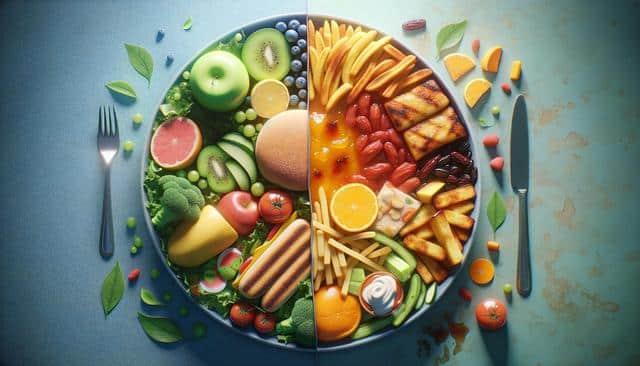
Clearer Skin Starts on Your Plate: Foods to Avoid for Acne-Free Living
Understanding the Link Between Diet and Acne
While skincare routines and topical treatments play an important role in managing acne, what you eat can also have a significant impact on your skin’s health. Research has shown that certain dietary choices may contribute to increased inflammation, hormone fluctuations, or excess oil production—factors that can all influence acne development. By identifying and reducing specific foods that may be triggering breakouts, you can support your skin from the inside out.
Dietary influences on acne vary by individual, but some patterns are consistently noted. Foods high in refined carbohydrates, dairy, and unhealthy fats have been associated with worsening acne in some people. Understanding these connections helps you create a more skin-conscious diet and potentially reduce flare-ups.
To make informed decisions, consider working with a healthcare professional or registered dietitian. They can help you identify food sensitivities and design a nutrition plan that supports not only your skin but your overall well-being.
Sugar and High-Glycemic Foods: A Common Trigger
One of the most frequently discussed dietary culprits in acne is sugar and other high-glycemic index (GI) foods. These items cause spikes in blood sugar and insulin levels, which may increase sebum production and promote inflammation—two key contributors to acne.
Examples of high-GI foods to limit include:
- White bread and pastries
- Sugary cereals
- Soda and sweetened beverages
- Candies and desserts
Reducing your intake of these foods may help stabilize hormone levels and reduce the likelihood of clogged pores. Instead, opt for low-GI alternatives like whole grains, legumes, and fresh fruits, which provide steady energy and are less likely to trigger skin issues.
It’s also a good idea to read labels carefully. Many processed foods contain hidden sugars, even those marketed as “healthy.” Staying mindful of your sugar consumption can make a noticeable difference in your complexion over time.
Dairy Products and Hormonal Fluctuations
Dairy, especially milk, is another food group often linked to acne. While the exact mechanism is still being studied, researchers believe that hormones naturally present in milk might influence the body’s own hormone levels, potentially leading to increased oil production and clogged pores.
Common dairy products to be cautious with include:
- Milk (especially skim milk)
- Cheese
- Ice cream
- Yogurt with added sugars
If you suspect dairy is affecting your skin, try eliminating it for a few weeks and observe any changes. Many people find that reducing or replacing dairy with alternatives like almond, oat, or coconut milk helps with acne flare-ups.
When shifting away from dairy, ensure you’re still getting enough calcium and vitamin D through other sources, such as leafy greens, fortified plant-based milks, or supplements if needed.
Processed Foods and Unhealthy Fats
Highly processed foods and those rich in saturated or trans fats can contribute to systemic inflammation, which may worsen acne symptoms. These ingredients may also affect gut health, another factor that’s increasingly linked to skin conditions.
Foods that fall into this category include:
- Fast food items
- Packaged snacks like chips and crackers
- Fried foods
- Ready-made frozen meals
These foods often contain additives, preservatives, and artificial ingredients that may disrupt your body’s natural balance. Choosing whole, minimally processed foods instead can support both your skin and your overall health.
Incorporating anti-inflammatory fats, such as those found in avocados, nuts, seeds, and fatty fish, can offer a healthier alternative and promote clearer skin.
Alcohol and Caffeine: Moderation Matters
While not inherently harmful in small amounts, excessive alcohol and caffeine intake can affect your skin in indirect ways. Alcohol can dehydrate your body and skin, leading to dullness and increased oil production as your skin tries to compensate. It may also disrupt liver function, which plays a key role in detoxifying the body, including the skin.
Caffeine, particularly from sugary coffee drinks or energy drinks, can contribute to increased cortisol levels—a stress hormone that may trigger acne. It can also interfere with sleep, and poor sleep is another well-known factor that affects skin health.
If you suspect alcohol or caffeine is contributing to skin issues, consider reducing your intake or switching to healthier alternatives:
- Herbal teas or decaffeinated drinks
- Infused water with lemon or cucumber
- Low-sugar mocktails
Balancing lifestyle habits, including hydration and rest, is just as important as managing your diet when it comes to achieving clearer skin.
Conclusion: Building a Skin-Friendly Diet That Works for You
Achieving clearer skin is not just about applying the right products—it’s also about nourishing your body with the right foods. By identifying and reducing intake of dietary triggers like sugar, dairy, processed foods, and excessive alcohol or caffeine, you can support a healthier complexion from within.
Everyone’s skin responds differently, so it may take some time and personal experimentation to find what works best for you. Keep a food diary, observe your skin’s reactions, and consult with a healthcare provider if needed for tailored advice.
Clear skin isn’t just a surface-level goal—it’s a reflection of your overall health. With mindful eating and thoughtful choices, you can take meaningful steps toward a glow that comes from the inside out.


